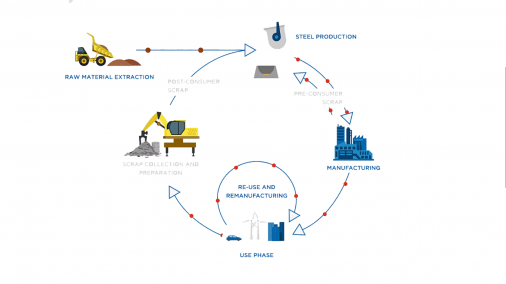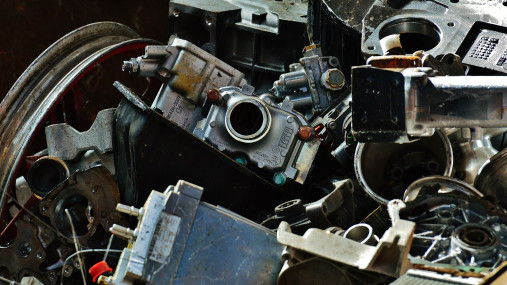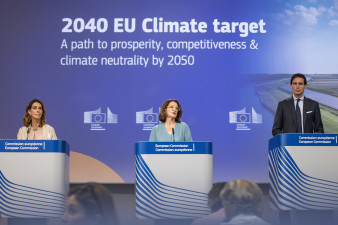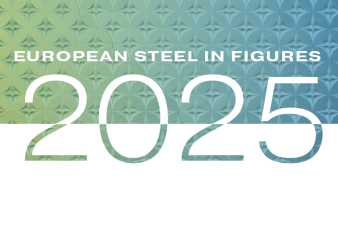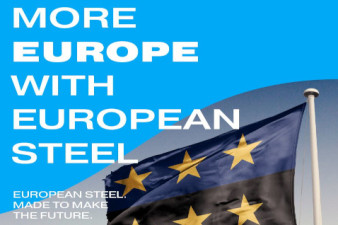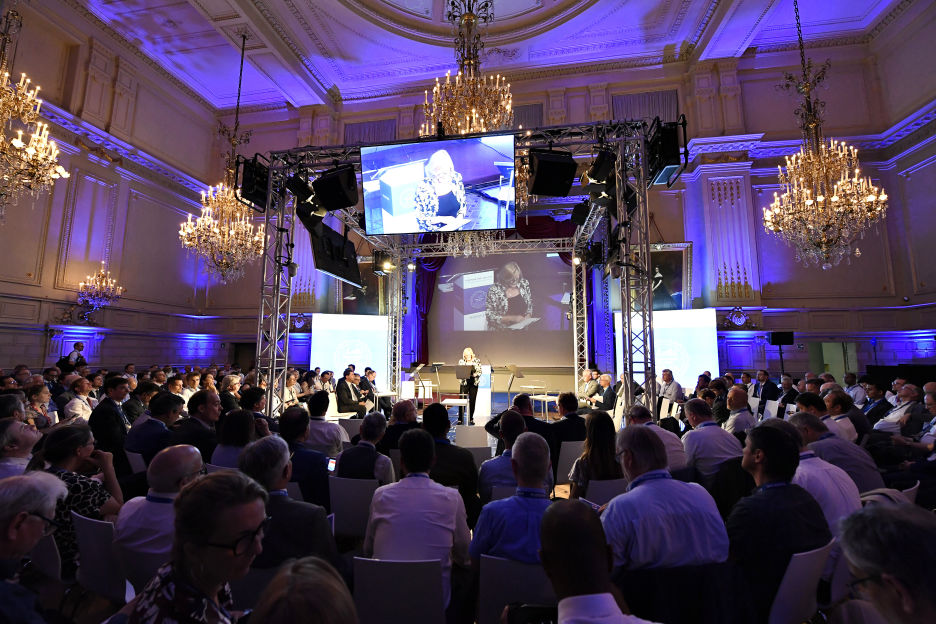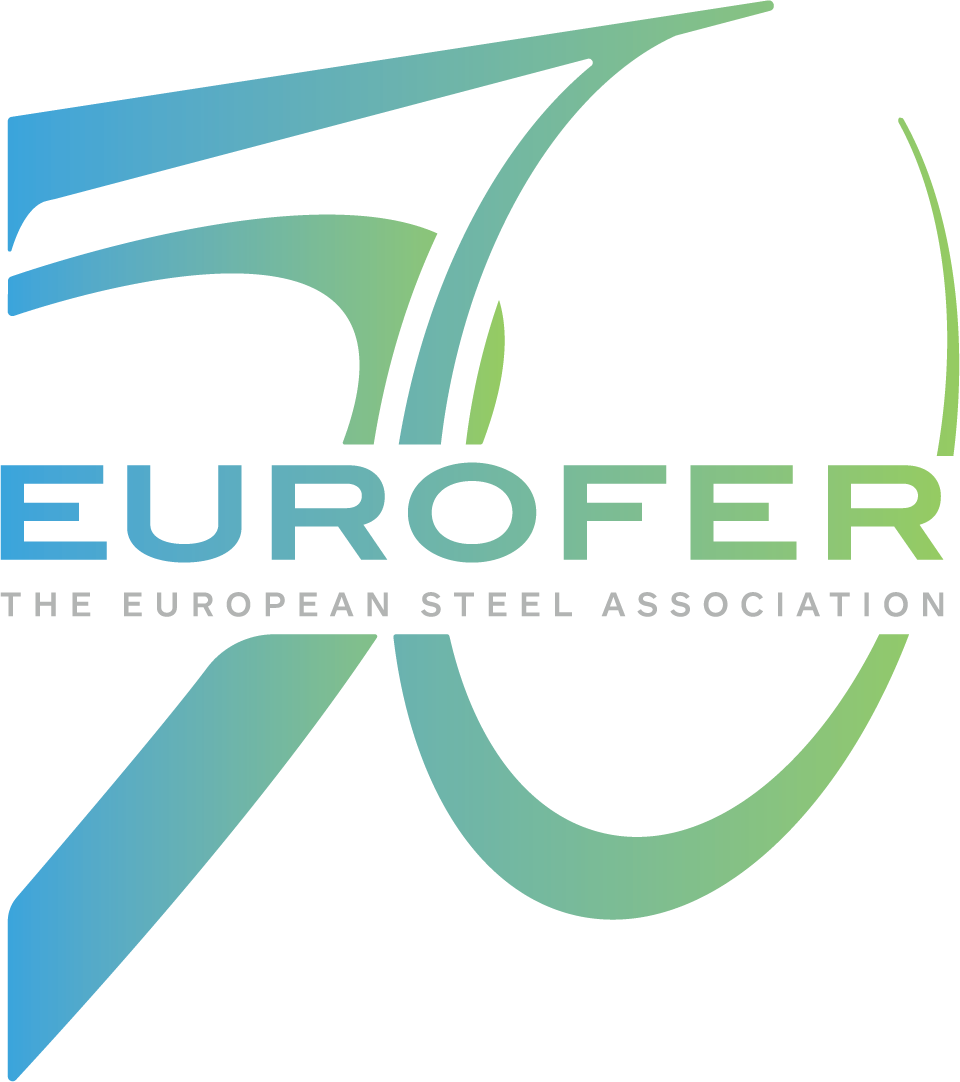Steel is at the centre of the circular economy. Steel is a permanent material – this is to say, it can be recovered and recycled endlessly, without losing its essential properties.
Steel production, use and recycling naturally follows a circular pattern, with steel products returning to the cycle once their service life has ended.
The large volumes of steel produced in Europe every year – 160 million tonnes – are made with large amounts of scrap steel. 56% of EU steel is made from scrap, with around 100 million tonnes of scrap steel recycled every year.
In 2020, the EU published a Circular Economy Action Plan. This Action Plan is an important step in developing a truly circular economy in Europe.
